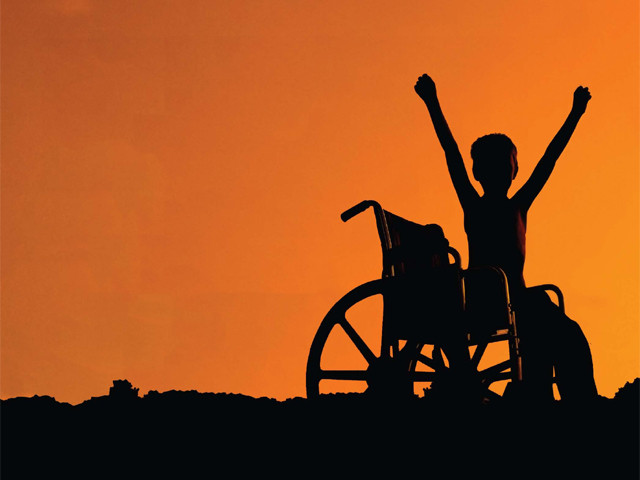Disabled persons: Rising to the challenge
Three brave people talk to about how they found the courage to lead a ‘normal’ life.

In the dark
In her mid-twenties, Naila Naseem is active, cheerful and friendly. Her face flushes red as she speaks passionately about her work as a teacher, and her eyes beam with confidence and intelligence as she discusses her undergraduate degree in botany. There is nothing she feels is missing from her life, but people around her do. Naila cannot see.
Born into a family of air force officers, architects and economists, she had healthy vision to begin with. But in middle school, she contracted a combination of typhoid and malaria that led to a gradual deterioration in her eyesight. In September 2005, the doctor told her she would be completely blind in 15 years. Just a month later, she woke up to total darkness.
Naila says it was difficult initially to adjust to the loss, but she was determined not to shed a single tear over it. “I had watched many movies and read stories about blind characters, but never imagined that I would end up as one of them. When you have vision, you can’t imagine how it feels to be visually impaired,” she says.
“But agonising over your condition is just self-torture. Can you change the facts by running away from them or fix your disabilities like that?”
She is determined not to allow herself to use her lack of sight as an excuse. “The society might treat us as the deprived ones and look down upon us, but we need to make them realise that we are not disabled. We can live our lives independently and not be a burden on anyone,” she says.
She teaches Islamic Studies to some 500 junior school students in various sections at the Lahore Grammar School, Gulberg, and recognises almost all of them from just their voices.
In the driving seat
At age 15, Kashif Shah’s father suggested that he quit school just before his matric exams. “He said he would set up a general store for me to run,” says Kashif. “He didn’t see much point in educating a disabled child as he didn’t think I would be accepted in general society.” Some of the teachers he encountered on his academic journey from public secondary school to post-graduate studies in economics had a similar attitude.
But Kashif was determined and strong-willed, and today at the age of 35, he has a secure job as a customer services officer in a multinational telecommunications company. He is married to a former colleague and they have two beautiful little daughters. He lives in a rented house in Garden Town fitted with a special made-to-order portable ramp for his wheelchair as a present from his landlord.
Kashif contracted polio at age four. His right leg is fully grown but weak and emaciated. His left leg is not fully formed. Physical immobility, he says, is a torment that can drive the disabled to extreme self-pity. It is in that state of mind that they can sometimes turn to beggary, he adds.
“We can only earn respect if we respect ourselves first. For that we will have to stop asking to be treated like the underprivileged and stop selling our deprivation in the name of mercy.”
And, he points out, there is always someone worse off. Two children in his extended family also got polio at the same time as him. They eventually lost both their legs. “I cannot walk, but I see both my legs and I thank God for not taking them away,” he says.
Learning to love
At age two, Asif fell into a tub of water and almost drowned. By the time his mother Zara noticed and pulled him from the water, his brain had been deprived of oxygen for long enough to cause a permanent learning disability. “The doctors said that mentally, he would never grow beyond his early teens,” says Zara. “He is 17 now, but has the mind of an eight-year-old.”
When they heard the doctors’ diagnosis, relatives and family elders proposed taking him to a pir. They sought charms and amulets to break the spell of the ‘black magic’ that they thought had led to his condition. But Zara says she accepted him and realised it was a “test” that she and her son had to undergo. She decided not to have another child, a decision that she says led to her divorce.
Asif is now doing exceptionally well. “He is one of the smartest kids in his fifth grade class, which is above his mental level. He often surprises his teachers with his distinctive questions and answers,” says Zara.
She says that she is taking the advice of his speech therapist and psychiatrist, who told her that to get the best out of Asif, he needs care, love and patience. She feels this approach is paying off. “Seeing the way I treat him, the neighbours, his schoolmates and relatives do not treat him the way such children are often treated,” she says.
Published in The Express Tribune, December 3rd, 2010.



















COMMENTS
Comments are moderated and generally will be posted if they are on-topic and not abusive.
For more information, please see our Comments FAQ